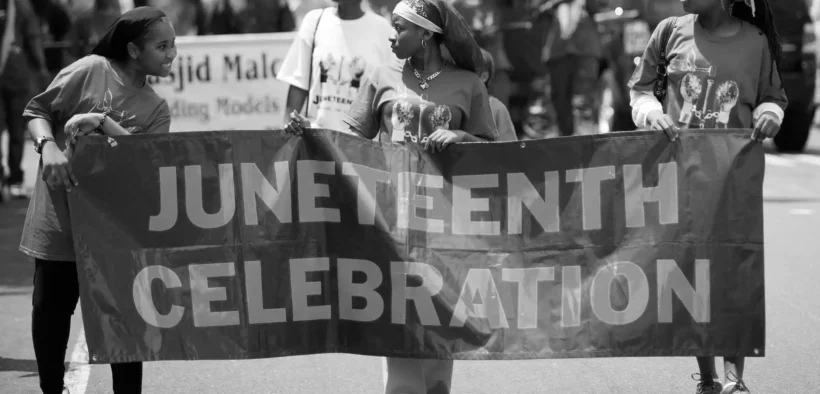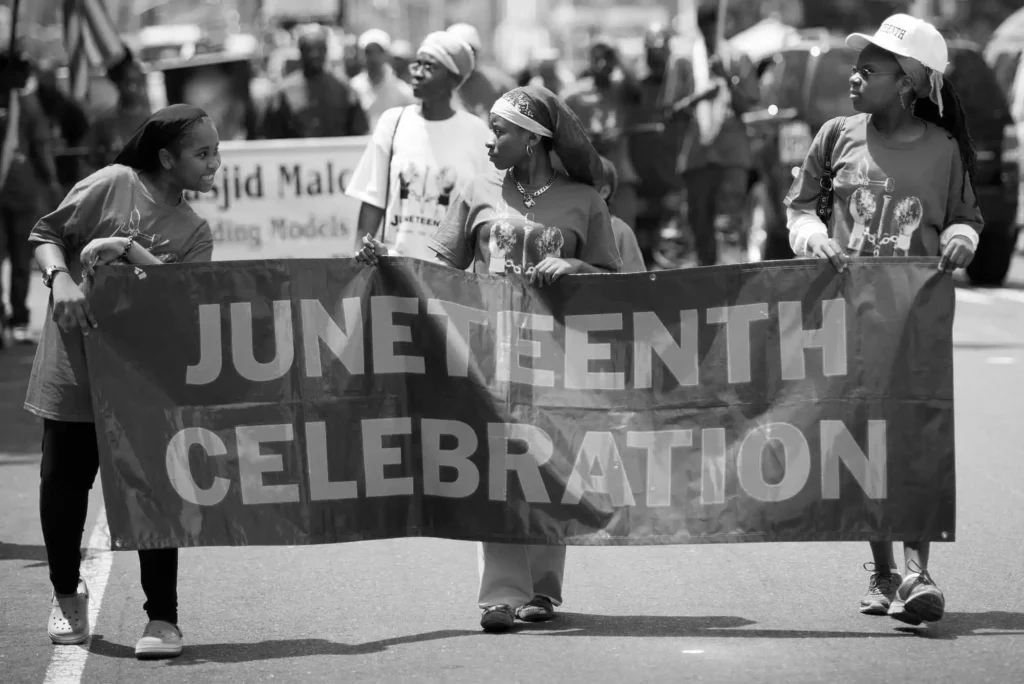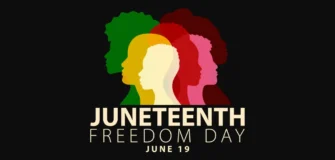Why Juneteenth Still Isn’t a True Day of Freedom
Share

When former President Joe Biden signed legislation in 2021 making Juneteenth a federal holiday, the symbolism was powerful. For the first time, the U.S. government formally acknowledged the significance of June 19, 1865, the day enslaved Africans in Galveston, Texas were told they were free, more than two years after the Emancipation Proclamation.
But four years later, in 2025, many Black Americans are asking: What has really changed?
As parades roll out and companies serve up themed cupcakes, a deeper truth lingers beneath the red, black, and green banners. Juneteenth may be celebrated as the end of slavery, but systemic oppression never left.
1. The Racial Wealth Gap Is Still Gaping
In 1865, Black Americans owned less than 1% of the nation’s wealth. In 2024, that figure is only around 3%, despite making up nearly 14% of the U.S. population. According to the Brookings Institution, the average white family holds eight times more wealth than the average Black family.
Redlining, mass incarceration, discriminatory lending practices, and unequal education funding have all contributed to this massive wealth divide. The Biden-Harris administration has introduced programs aimed at Black entrepreneurship and homeownership, but researchers say the impact has been incremental.
“We cannot truly celebrate freedom on Juneteenth while generational poverty traps millions of Black families,” said Andre Perry, a senior fellow at Brookings.
2. Voting Rights Are Under Threat—Again
Freedom includes the right to vote. But today, Black voter suppression tactics are alive and well.
Since the Supreme Court gutted key parts of the Voting Rights Act in Shelby County v. Holder (2013), states like Georgia, Texas, and Florida have passed laws that disproportionately impact Black voters, from reducing mail-in ballot access to strict ID requirements and fewer polling locations.
The Brennan Center for Justice notes that between 2021 and 2023, at least 29 states passed 103 laws restricting voting access. Black communities were often the hardest hit.
Read More: How Black Communities Are Celebrating Juneteenth in 2025
3. Policing Still Feels Like a Modern-Day Patrol
Policing in America has deep ties to slave patrols, a fact not lost on Juneteenth observers. And despite decades of reform promises, police brutality remains a deadly reality for Black Americans.
The Mapping Police Violence database shows that Black people are nearly three times more likely than white people to be killed by police, even though they are 1.3 times more likely to be unarmed.
From George Floyd to Tyre Nichols, names of Black lives taken unjustly continue to stack up, while police accountability remains rare.

4. Corporate Performances Don’t Equal Progress
Every Juneteenth, companies roll out Instagram posts, branded water bottles, and themed events. But many of these same companies are scaling back their internal DEI (Diversity, Equity, and Inclusion) commitments.
A 2024 McKinsey report showed that more than 60% of Fortune 500 companies cut or froze DEI-related budgets post-2022. Some laid off entire DEI teams.
“It’s window-dressing,” says DEI consultant Erica Gordon. “Juneteenth merch is easy. Pay equity and Black leadership are hard.”
5. Freedom Must Be Measured By More Than a Holiday
If freedom is about autonomy, dignity, and opportunity, then Black America is still chasing the promise.
- Black maternal mortality is three times higher than white maternal mortality.
- Black students face more suspensions and harsher discipline than their white peers for the same behavior.
- Only 5.2% of U.S. physicians are Black, while health disparities persist.
For many Black families, true emancipation has yet to be realized.
This Juneteenth, it’s not enough to remember, we must demand.
So, what would real freedom look like?
Real freedom would look like:
- Reparations for the legacy of slavery and Jim Crow.
- Universal healthcare access, especially maternal care for Black women.
- Federal protection of voting rights.
- Economic mobility through wealth-building policies and land ownership.
- Police accountability and criminal justice reform.
Juneteenth should absolutely be celebrated — but not sanitized.
It should remind America of a hard truth: freedom delayed is freedom denied. And until economic, social, and political justice is secured for every Black American, Juneteenth is not a finish line — it’s a checkpoint.
“We were the last to know we were free,” said activist Brittany Packnett Cunningham. “And in many ways, we still are.”


























